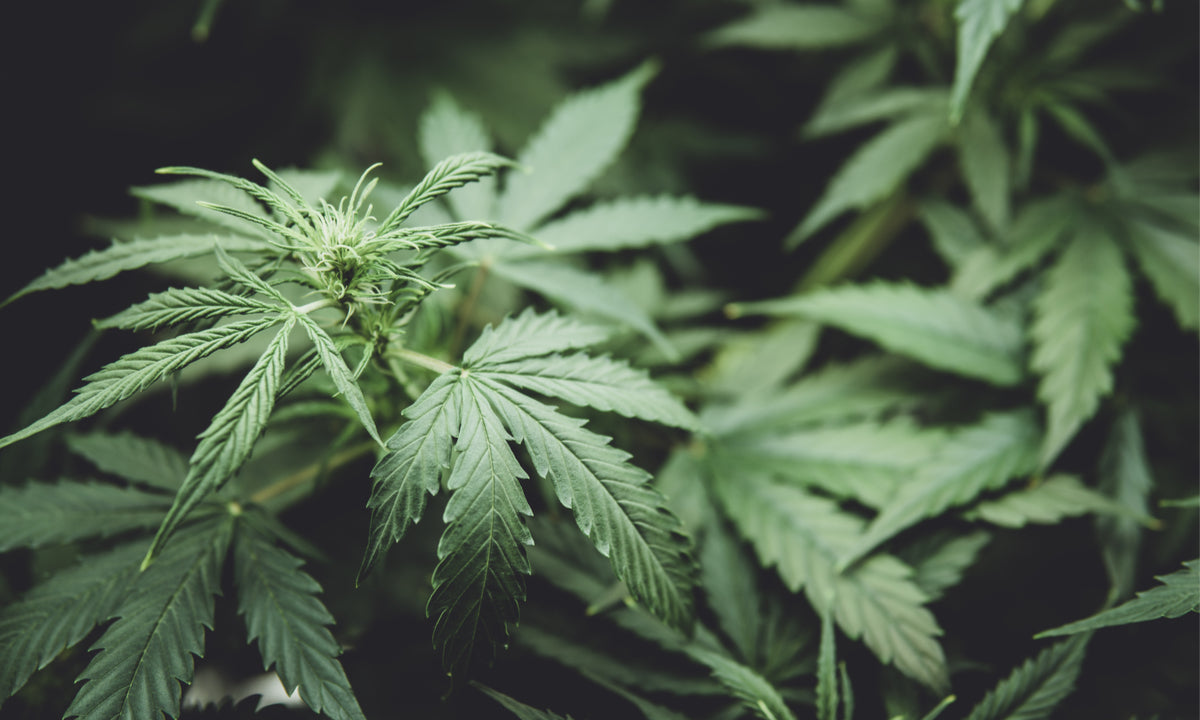Your Cart is Empty
FREE SHIPPING on US orders over $45. Save 25% With Code TAKE25 at checkout.
FREE SHIPPING on US orders over $45. Save 25% With Code TAKE25 at checkout.

Countless creams, lotions, and salves infused with CBD have been launched this year, propelling what used to be a highly niche ingredient into a bonafide skincare trend. Thanks to CBD, cannabis has officially traded in its stoner image for a new one as a high-end beauty and wellness ingredient (Kim Kardashian even considered throwing a CBD-themed baby shower).
There’s no denying that CBD is everywhere: infused in coffee, chocolates, gummies, mascara, body lotions — you name it!
So what’s the deal with CBD? Will it ease everyday stress? Get you high? Give you great skin? And why is everyone talking about it?
CBD, short for cannabidiol, is the buzziest cannabinoid in the beauty business. It’s commonly marketed as a compound that can help relieve stress and anxiety, but more research is needed on CBD's effects and potential benefits.
So far, short-term human studies suggest that CBD exhibits anti-inflammatory and anti-anxiety properties. More clinical trials — like this one — are needed to determine whether CBD may be a safe and effective option for managing issues like anxiety, insomnia and chronic pain.
Definitely not. It’s tetrahydrocannabinol (THC) that produces the psychological “high” associated with smoking marijuana. Studies have shown that even high doses of CBD do not cause THC-like effects in humans. Which is exactly what’s making CBD so popular right now.
CBD is known for its healing properties. It offers some serious antioxidant, analgesic (pain-killing), and anti-inflammatory benefits, which can be helpful in treating a number of different skin conditions.
There is limited data to suggest that topical CBD may decrease oil production, which could help suppress acne breakouts. Other studies suggest that CBD may be effective in treating dry skin, eczema and psoriasis, which is why it’s popping up in so many face creams and body lotions.
Although more research behind CBD’s efficacy is needed, it’s generally considered safe to use topically. Topical CBD is believed to penetrate the skin enough to produce an effect, but not so deep that it gets into the bloodstream. It provides a localized effect when absorbed through the pores, working with a specific set of cannabinoid receptors (called CB2 receptors) inside the skin.
The first thing to be aware of is the amount of CBD a product claims to contain. Due to lack of regulation, consistency varies widely from brand to brand and product to product. According to a 2017 study published in the Journal of the American Medical Association, more than 60% of online CBD products are mislabeled.
The rapid growth of the CBD beauty industry has led some brands to slap a “quality” label on an inexpensive, low-quality — and sometimes unsafe — product. Certain CBD products may also have lower CBD content than advertised.
It’s always best to choose products that have been tested in a third-party lab. That means a private party (not affiliated with the manufacturer or distributor) performs a scientific analysis of the product. The results are neutral and unbiased, which benefits the consumer because transparency is guaranteed. With an independent test, there’s no way for a company to alter results or publish inaccurate information.
There are plenty of great CBD beauty brands out there — the trick is to sort through the suppliers who are authentic about their mission. Find a brand you trust so you can feel confident that your products are safe and they contain exactly what the labels say they contain.
Although CBD is readily available in most parts of the U.S., its exact legal status is murky. Until recently, the federal Drug Enforcement Administration (DEA) classified CBD extract as a Schedule 1 substance — their most restricted category. According to the DEA, “Schedule 1 drugs, substances, or chemicals are defined as drugs with no currently accepted medical use and a high potential for abuse.”
The passage of the Farm Bill in December 2018 changed things by lifting the federal ban on commercial hemp production (hemp also contains CBD, though in lower amounts than cannabis). But there’s still a lot of confusion surrounding the legality of CBD, and we’re still waiting on actual CBD regulations from the FDA.
Individual states have their own rules though, so it's best to check local rules and regulations in your area for current status.
Do not confuse “hemp seed oil” with CBD. Hemp seed oil and CBD oil are very different products.
The active CBD compounds come refining from the flowers, leaves, and stems of the cannabis plant, while hemp seed oil is derived from the seeds and stalk of the hemp plant.
CBD and other active cannabinoid are not present in hemp seeds, and very little, if any, is present in the stalk of the plant. Hemp seed oil does not have any restrictions legally, and has been in use in skincare and foods for eons. Hemp seed oil is not used recreationally, it's primary uses are in food and topical skincare.
The benefits of hemp seed oil are different from CBD, and are more like those of other plant seed oils. For example, hemp seed oil benefits include hydration and soothing inflammation thanks to healthy fatty acids, minerals and vitamins. Hemp seed oil is popular in skincare products that target eczema, psoriasis and acne as well as in everyday moisturizers.
Many topical CBD products are formulated to help repair, protect, and moisturize the skin. But buyers beware: CBD is still fairly new and unregulated. Fortunately, many companies are being transparent and giving consumers the information they need.
Still, more research is needed to determine whether or not CBD has staying power as a skincare ingredient.